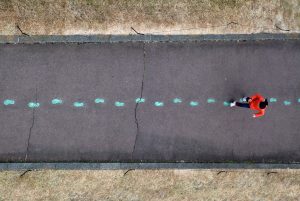Pedagogy, to me, is more than just a method of delivering knowledge—it is a way to shape thinking and cultivate skills. Throughout my learning journey, constructivism has had a profound impact on me. I firmly believe that true learning occurs through practice, exploration, and interaction rather than passive absorption of information. In an online learning environment, I have found that project-based learning (PBL) and collaborative discussions significantly enhance my understanding of complex concepts. For instance, in an economics course, my classmates and I used Google Docs to collaboratively analyze a case study. We divided tasks, brainstormed through Zoom, and ultimately produced a high-quality report. This process of actively constructing knowledge made my learning experience much more meaningful.

Networked pedagogy has fundamentally changed how I learn. In the past, knowledge acquisition was confined to classrooms and books. Now, social media, MOOCs (such as Coursera and edX), and online forums allow me to connect with learners from all over the world. In a data analysis course, I solved several technical issues by engaging in discussions on Reddit and Stack Overflow, and I even exchanged ideas with experts on Quora, broadening my perspective. Technology has played a critical role in this transformation—educational videos on YouTube enable me to learn at my own pace, while interactive tools like Kahoot make reviewing content more engaging. This networked learning approach has not only enhanced my educational experience but also strengthened my critical thinkingand information evaluation skills, helping me filter valuable knowledge from an overwhelming amount of online content.

Photo by Flickr user jfchenier under CC license: BY-NC 2.0
Throughout my studies, I have come to realize that teachers are not just transmitters of knowledge but also facilitators and motivators. Effective online instructors create a supportive learning environment, fostering interaction and engagement. One outstanding online professor I had not only actively participated in our course discussions but also provided personalized feedback through Loom videos, making me feel genuinely supported. In contrast, some online courses that lacked interaction left me feeling isolated and disengaged. This experience highlighted the crucial role of instructor presence in online education. Teachers must not only design structured courses but also actively engage students through discussions, feedback, and guidance—ensuring that learning goes beyond merely listening to lectures.

In today’s increasingly digital world, online spaces are not just tools for acquiring knowledge but platforms for exchanging ideas and broadening perspectives. According to research from Cambridge University, digital literacy is an essential 21st-century skill. Beyond simply using digital tools, we must develop critical thinking, learn to assess the credibility of information, protect personal privacy, and maintain constructive communication in online communities. For example, when conducting research using Google Scholar, I carefully verify citations to ensure credibility. When participating in online discussions, I respect diverse viewpoints and provide constructive feedback to foster meaningful dialogue.

Overall, the integration of pedagogy and networked learning has made me a more active participant in my education and has taught me how to learn and contribute effectively in digital spaces. The role of teachers has expanded beyond traditional classrooms—they are now guides in the digital learning environment. In the future, I hope to be more than just a passive receiver of knowledge; I aspire to contribute my insights to digital communities and grow alongside learners worldwide.